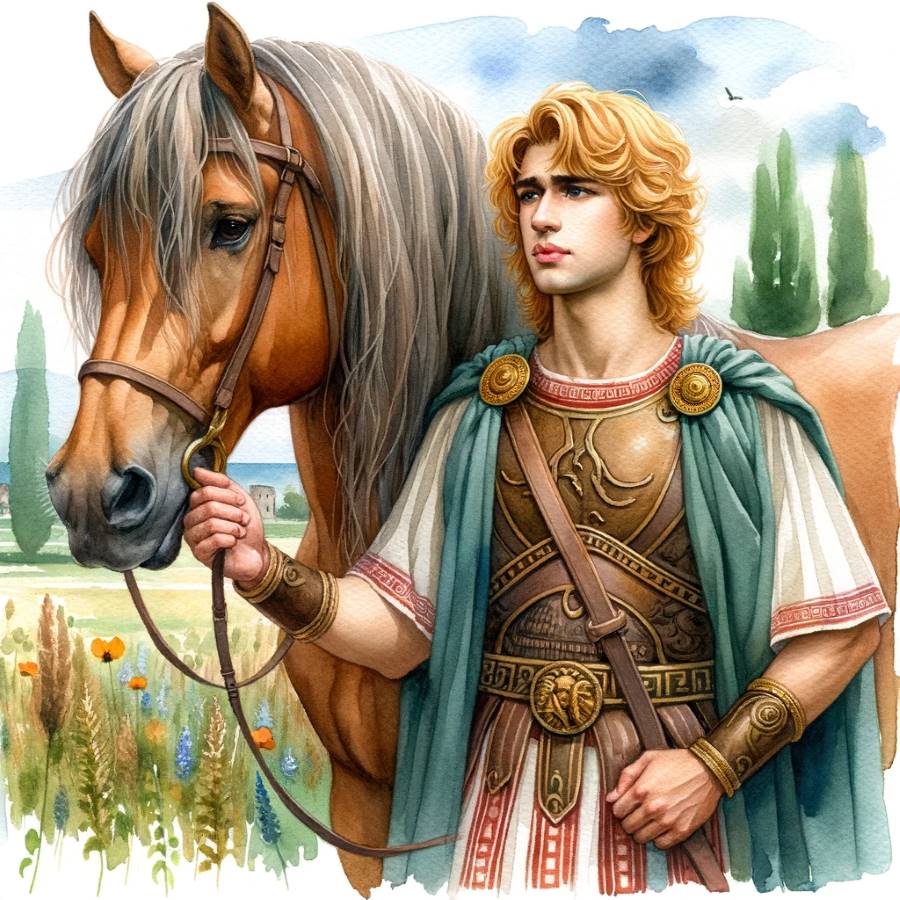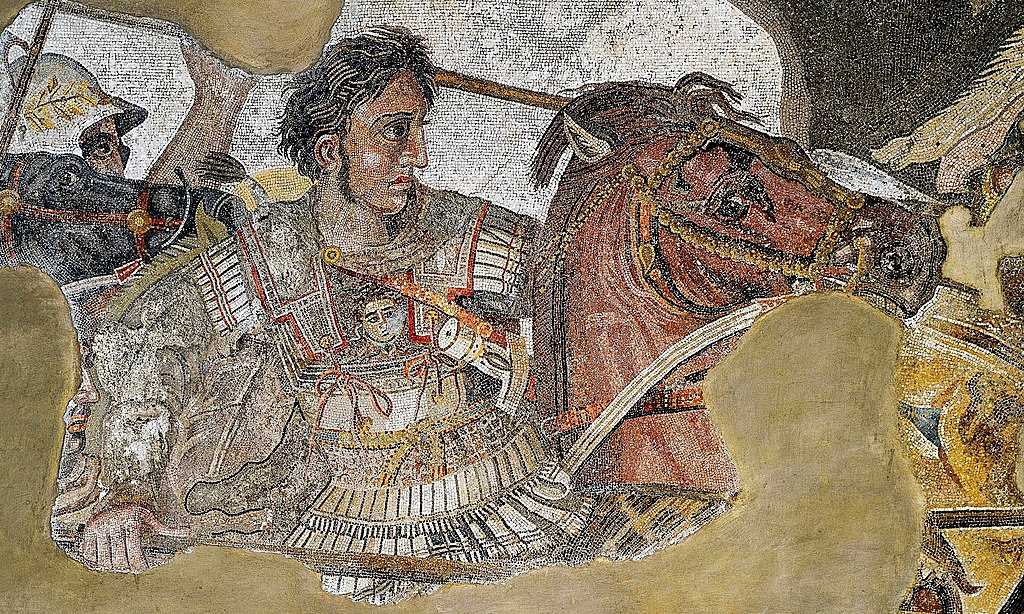The bond between a rider and his horse is a theme that resonates through history, but perhaps no such relationship is as celebrated as that between Alexander the Great and his horse, Bucephalus. This story, rooted in historical fact and enriched by Plutarch’s writings, captures the essence of trust, intuition, and leadership.
Alexander the Great, born in 356 BC in Pella, the ancient capital of Macedonia, displayed signs of leadership, courage, and intelligence from a young age. As the son of King Philip II, he was exposed to the arts of war, diplomacy, and leadership. Yet, among all the tales of his youth, one stands out prominently: the taming of Bucephalus.
Bucephalus was not an ordinary horse. His name, derived from the Greek words “bous” (ox) and “kephalē” (head), hints at his massive and ox-like head. This black stallion with a large star-shaped mark on his forehead was known for his wild temperament. Many had tried to tame him but to no avail. Due to his uncontrollable nature, the horse was deemed untamable by most.
It was during a horse market that King Philip first encountered Bucephalus. The horse was presented by Philonicus the Thessalian for a price of 13 talents, a significant amount in those times. However, as the horse was unmanageable, Philip was uninterested. It was at this moment that a young Alexander stepped forward, challenging that he could tame the wild beast.
According to Plutarch, Alexander had observed something that others had missed. He noticed that Bucephalus was fearful of his own shadow, which led him to act out. With this insight, Alexander made a wager with his father: if he failed to mount the horse, he would pay for it himself. Turning Bucephalus towards the sun so that the horse could no longer see his shadow, Alexander approached him. Speaking gently and with confidence, he stroked the horse and then, in one swift move, mounted him. To the astonishment of all present, Alexander rode Bucephalus around the field with ease.
The historian Plutarch, to whom we owe most of the details of this extraordinary moment, relates to when Alexander cantered the horse back to where Philip and his men stood, the king’s eyes filled with tears. Philip exclaimed, “Son, you had better try to find a kingdom you fit: Macedonia is too small for you!”

This event was not just about taming a horse; it was symbolic of Alexander’s ability to understand, innovate, and lead. His intuitive understanding of Bucephalus’s fear showcased his observational skills, while his courage in approaching and mounting the horse highlighted his fearlessness.
Plutarch, in his ‘Life of Alexander’, quotes Alexander saying, “We should not be possessed by anger or other emotions but should rule over them.” This sentiment is mirrored in his approach to Bucephalus. Instead of conquering the horse with force, he used understanding and empathy.
Bucephalus and Alexander went on to share many adventures, with the horse participating in numerous battles and expeditions. Their bond was so profound that when Bucephalus died, Alexander mourned his passing deeply and founded the city of Bucephala in his honor.
In conclusion, the tale of Alexander and Bucephalus is not just a story of a man and his horse. It is a testament to the power of observation, understanding, and trust. Their relationship serves as a metaphor for Alexander’s approach to leadership and conquest, where intuition and empathy played as significant a role as strategy and strength. As Plutarch’s writings suggest, true greatness comes not just from power but from the ability to understand and connect.
Historical Challenge: Can You Conquer the Past?
Answer more than 18 questions correctly, and you will win a copy of History Chronicles Magazine Vol 1! Take our interactive history quiz now and put your knowledge to the test!

